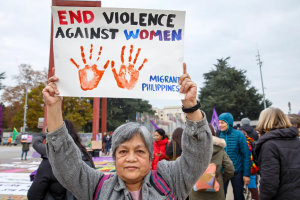By: Firdevs Okatan
Impunity Watch Staff Writer
STRASBOURG, France – On January 30, 2024, the European Court of Human Rights (ECHR) ruled that Russia breached fundamental rights of journalists Akhmednabi Akhmednabiyev and Khadzhimurad Kamalov, whose murders in Dagestan, Russia highlighted critical systemic failures and underscored the ongoing risks to press freedom.
 |
The case before the ECHR, which was brought by relatives Mutaelum Akhmednabiyev and Ali Akhmedovich Kamalov, sought justice for the journalists and highlighted systemic failures in the Russian judicial system. Akhmednabi Akhmednabiyev, Deputy Editor of Novoye Delo and Correspondent for Kavkazskiy Uzel, was included on a death threat leaflet in September 2009. On July 9, 2013, he was assassinated near his home in Semender, Russia. Khadzhimurad Kamalov, founder and editor of the Dagestan newspaper Chernovik was named also in the leaflet that targeted journalists, human rights defenders, and lawyers. Kamalov was murdered in Makhachkala, Russia on December 15, 2011.
In December 2011, Russian authorities initiated criminal investigations into the murders. The investigations sought to uncover the motives behind these crimes, which was seemingly linked to the journalists’ professional activities and their criticisms of local authorities. Akhmednabiyev and Kamalov’s families experienced numerous challenges throughout the legal process, including perceived inadequacies in the investigations’ thoroughness and pace, leading to claims of procedural violations. The investigations were marked by delays, suspensions, and allegations of ineffectiveness, raising serious concerns about the commitment to fully uncover the truth and bring the perpetrators to justice.
The ECHR found Russia violated of Article 2 of the European Convention on Human Rights (the right to life) in both procedural and substantive aspects of Akhmednabiyev’s case, and only in the procedural aspect of Kamalov’s case. The Court underscored the lack of effective investigation by Russian authorities and the failure to provide adequate protection to the journalists, despite known threats to their lives.
The Court ordered Russia to pay EUR 26,000 to Akhmednabiyev’s family and EUR 20,000 to Kamalov’s, acknowledging the resulting non-pecuniary damage suffered from the state’s failure to protect their rights.
For further information, please see:
Committee To Protect Journalists – Akhmednabi Akhmednabiyev Killed – 09 Jul. 2013
ECHR – Case of Akhmednabiyev and Kamalov V. Russia – 30 Jan. 2024
European Convention on Human Rights – 1950



